From The Soho News (June 4, 1980). -– J.R.

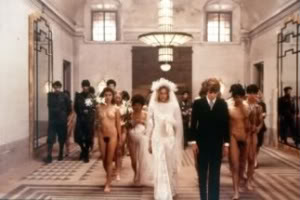
Porcile (Pigpen)
A Film by Pier Paolo Pasolini
Bleecker Street Cinema, June 6
Salò
A Film by Pier Paolo Pasolini
Based on the 120 Days of Sodom
By the Marquis de Sade
Bleecker Street Cinema, June 11 and 12
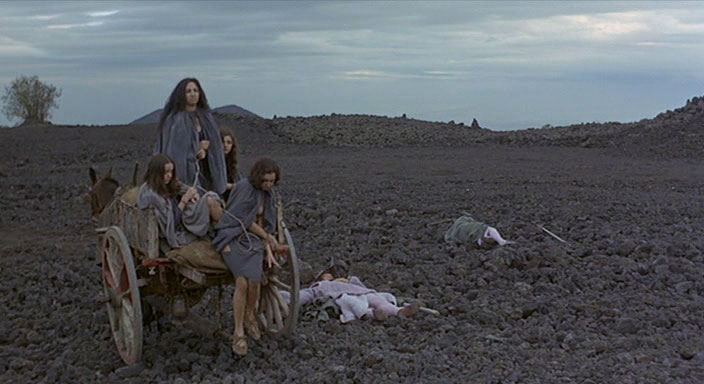
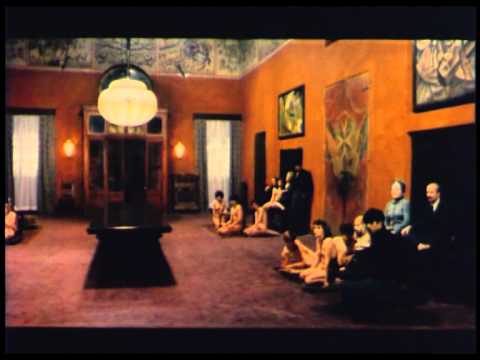
“The problem with Pasolini,” a friend observed to me succinctly many years ago, “is that he wants to be fucked by Jesus and Marx at the same time.” A “pre-industrial,” populist poet and novelist from northern Italy whose relation to the Catholic Church and the Italian Communist Party were as passionately idiosyncratic as the homoeroticism of his films, Pasolini remains, nearly five years after his brutal murder, an indigestible provocateur in relation to our culture – someone who can be neither entirely absorbed nor totally rejected, but lingers like a troubling, irritating sore.
The recent and very belated release of his version of The Canterbury Tales (1972), the second part of his “trilogy of life” after The Decameron (1971), offers spectators a chance to catch more farting jokes than can probably be found in Blazing Saddles. His vastly superior version of The Arabian Nights (1974), which rounds off the trilogy –- probably the most sustained flirtation with paganism to be found in his work –- has yet to reach these provincial shores. Read more
From the Chicago Reader (July 13, 1990). I wish I could remember now which Reader staffer thought up the brilliant headline; it wasn’t me. — J.R.
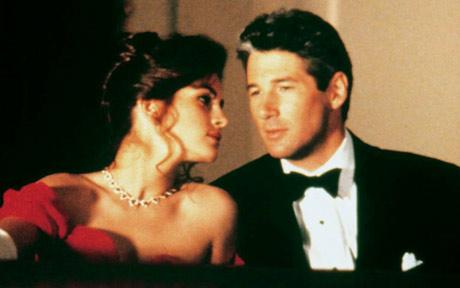
PRETTY WOMAN
(Worthless)
Directed by Garry Marshall
Written by J.F. Lawton
With Richard Gere, Julia Roberts, Ralph Bellamy, Jason Alexander, Laura San Giacomo, Alex Hyde-White, and Hector Elizondo.
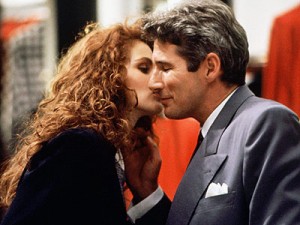
Having missed Pretty Woman when it opened more than three months ago, I figured I would just let it pass, but ultimately curiosity got the better of me. I’m not a big fan of either Richard Gere or Julia Roberts, but finally I had to see for myself how a movie that seemed to celebrate prostitution (at the same time it trashes prostitutes) — brought to us by the Disney studio, the same people responsible for such squeaky-clean family entertainments as Dick Tracy and the rerelease of The Jungle Book — could become one of the biggest hits of the year.
Now that I’ve seen it, I still think Pretty Woman celebrates prostitution while trashing real-life prostitutes, but not in the way that I originally imagined, and not in a way that is readily apparent. In fact the film manages to espouse prostitution while cleverly concealing the fact that it is doing so. Read more
From the Chicago Reader (February 1, 1989). — J.R.
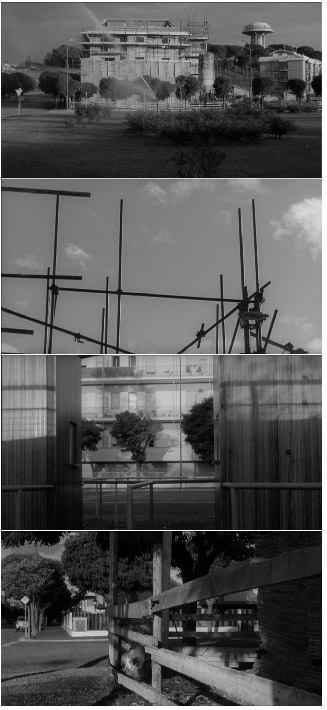
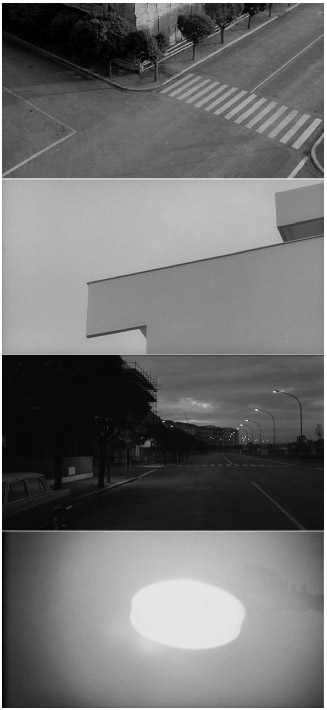
The conclusion of Michelangelo Antonioni’s loose trilogy (preceded by L’Avventura and La Notte), this 1961 film is conceivably the best in Antonioni’s career, but significantly it has the least consequential plot. A sometime translator (Monica Vitti) recovering from an unhappy love affair briefly links up with a stockbroker (Alain Delon) in Rome, though the stunning final montage sequence — perhaps the most powerful thing Antonioni has ever done — does without these characters entirely. Alternately an essay and a prose poem about the contemporary world in which the love story figures as one of many motifs, this is remarkable both for its visual/atmospheric richness and its polyphonic and polyrhythmic mise en scene (Antonioni’s handling of crowds at the Roman stock exchange is never less than amazing). In Italian with subtitles. 123 min. (JR)
 Read more
Read more
From The Soho News (July 8, 1981). From today’s vantage point (fall 2016), I think I was much too needlessly unkind here to Blake Edwards, not to mention Paul Schrader. But I would add that part of my charge against S.O.B. would apply equally well to The Player: the alleged hatchet-job is really a celebration, and one that depends on the hypocritical complicity of the viewer. -– J.R.

Disney Animation and Animators
Whitney Museum of American Art.
through September 6
S.O.B.
Written and directed by Blake Edwards

Postmodernism is a jive-ass, commercially-minded, art-related movement which seems to be guided by three central tenets or market strategies” (1) if it works, it’s art; (2) if it fails, it’s politics; (3) if it sells, it works. It also betrays an overall yearning aspiration to reconcile radically opposed positions, like Karl Marx and Ayn Rand. (If you had to boil it down to a single tenet, perhaps this would be Total Gross Precedes Essence, with Existence left out of the formula.)
The spiritual home and stomping ground of postmodernism is Southern California, although a lot of its promotional rhetoric seems to get pumped through New York channels. Its principal aim often appears to be to destroy the individual and combined existential integrity of both art and politics by turning them into the two faces of commerce, this making them “available” (at a price) to everyone. Read more
From Monthly Film Bulletin, May 1976 (Vol. 43, No. 508). Many years later, I revised and expanded this review for an essay commissioned by the Masters of Cinema DVD of Spione, called “Inside the Vault”. –- J.R.
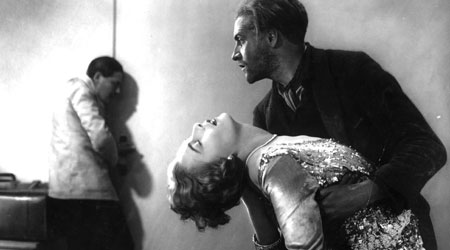
Spione (The Spy)
Germany, 1928Director: Fritz Lang
An unidentified European country. After two treaties are stolen by a spy ring, and all the best agents of Burton Jason, head of the Sectet Service, have been killed while attempting to recover them, Jason summons detective Donald Tremaine, who arrives disguised as a tramp. The master-mind of the thefts, Haghi — an apparent cripple who runs a bank and has built a spy ring mainly out of criminals he has secretly sprung from prison — assigns Sonia to find out from Tremaine when a new treaty is to be signed. Rushing into Tremaine’s hotel suite after shooting a man whom she claims attacked her (and who survives thanks to a wallet in his breast pocket which stops the bullet), she gets Tremaine to hide her and quickly charms him. Charmed herself, she begs Haghi to take her off the case, but he forces her to write Tremaine a letter, which he dictates. Tremaine comes to her house and they make a date for dinner, but she is called away from the restaurant by Haghi. Read more












